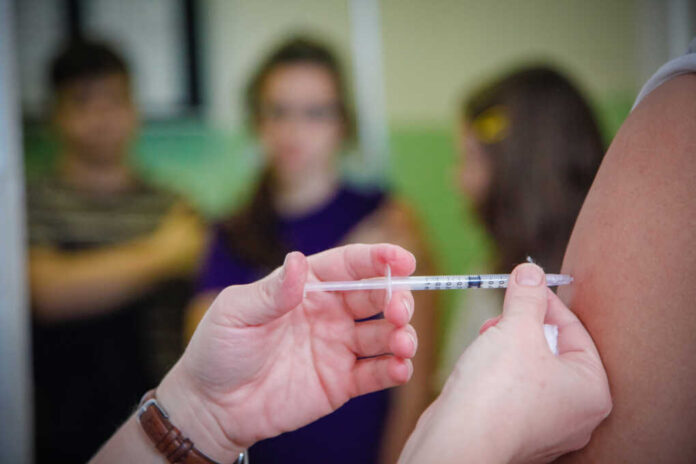
A hidden group of vaccinated people loses COVID-19 protection far faster than anyone expected, and their fate may soon change how every booster shot is given.
Story Snapshot
- Researchers in Japan identified four distinct immune response patterns after COVID vaccination, with some people losing protection rapidly.
- Those who experienced rapid antibody decline were at higher risk for breakthrough infections—even if their initial response seemed strong.
- Tracking blood IgA(S) antibody levels may be the key to predicting individual risk and tailoring booster recommendations.
- Large-scale, long-term data and AI-based analysis were critical in exposing these hidden immune patterns.
The Hidden Vulnerability in Vaccine Protection
Over two and a half years, Japanese scientists followed more than 2,500 people from their first COVID-19 shot through 18 months of blood tests and antibody tracking. Their goal: to find out why some vaccinated people sailed through wave after wave of COVID, while others—seemingly just as protected—succumbed to breakthrough infections. Their results? Four clear patterns of immune response emerged, and one group, the so-called “rapid-decliners,” stood out for all the wrong reasons.
Rapid-decliners started off like stars: their bodies produced high levels of coronavirus-fighting antibodies after vaccination, and initial lab results suggested robust protection. But within months, those antibody levels plummeted—sometimes dropping below protective thresholds well before the next recommended booster. These individuals were not rare outliers; they represented a significant, previously overlooked portion of the population. Their risk of infection quietly soared, even as public health messaging focused only on the average.
The hidden group that loses COVID protection fast https://t.co/R0ybTltvD9
— Un1v3rs0 Z3r0 (@Un1v3rs0Z3r0) September 19, 2025
Decoding the Four Immune Response Patterns
Delving into the data, researchers used artificial intelligence to sort participants into four distinct groups: durable responders, rapid-decliners, vulnerable responders, and intermediate responders. Durable responders maintained high antibody levels throughout, representing the gold standard for vaccine protection. Vulnerable responders, on the other hand, never achieved robust antibody levels, remaining at risk despite repeated vaccination. Intermediate responders fell somewhere between these extremes.
But it was the rapid-decliners who posed the greatest puzzle. Despite their promising start, their antibody levels fell faster than any other group. The study found that even after a third booster shot, these individuals’ immune protection melted away, sometimes within just a few months. When breakthrough infections were tracked, rapid-decliners were disproportionately represented. Notably, a key marker—blood IgA(S) antibody—was consistently lower in this group, linking their waning immunity to decreased protection in the nose and throat, the body’s front line against the virus.
The Implications: Personalized Boosters and New Testing
This research has seismic implications for public health strategy. If rapid-decliners can be identified through routine blood tests for IgA(S) antibodies, booster schedules could be tailored for individual risk rather than one-size-fits-all timetables. Elderly individuals and healthcare workers, who were overrepresented in the rapid-decliner and vulnerable responder groups, could receive more timely boosters and closer monitoring, potentially reducing the toll of breakthrough infections and severe disease.
The economic and social impacts are equally profound. Targeted booster campaigns could reduce healthcare costs and increase public trust by focusing resources where they’re needed most. Diagnostic companies are already eyeing the development of affordable IgA(S) tests. As for vaccine manufacturers, the findings push them to optimize formulations for longer-lasting immunity, especially for those genetically or biologically predisposed to rapid antibody decline.
Sources:
Nature Scientific Reports
ScienceDaily: Japanese Study on Immune Response Patterns
Nature npj Vaccines
Science Translational Medicine


















